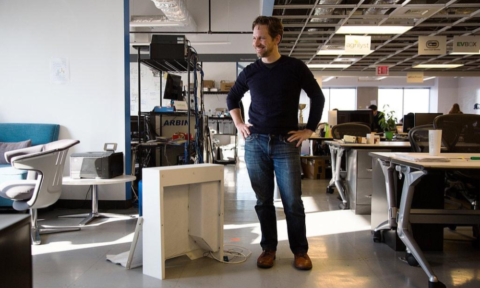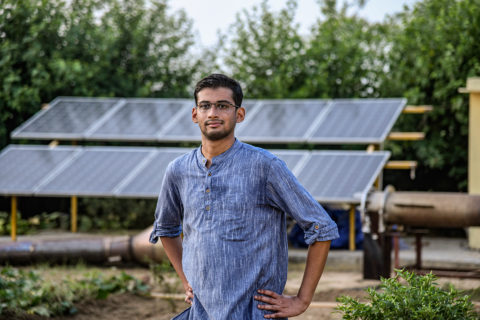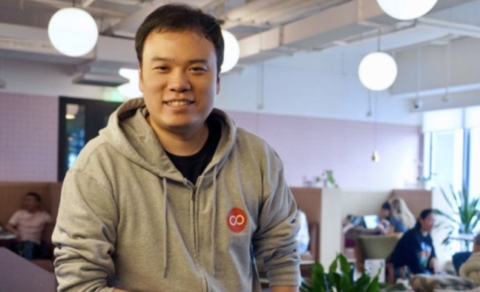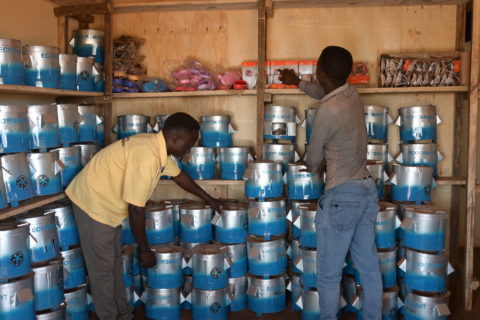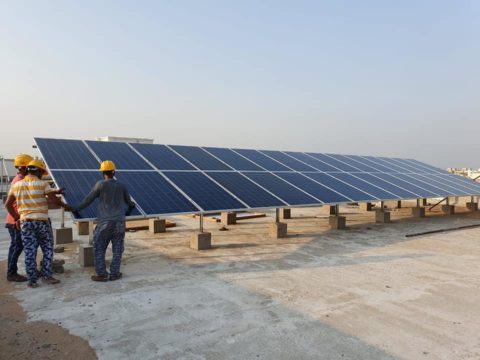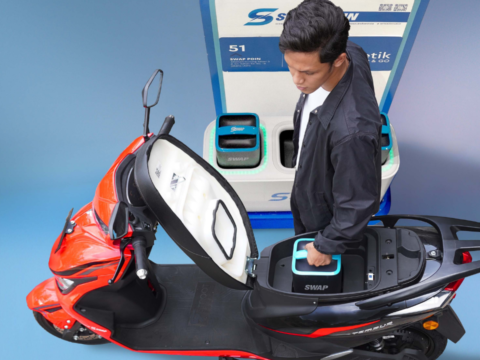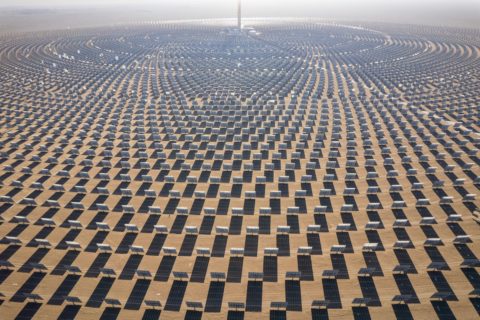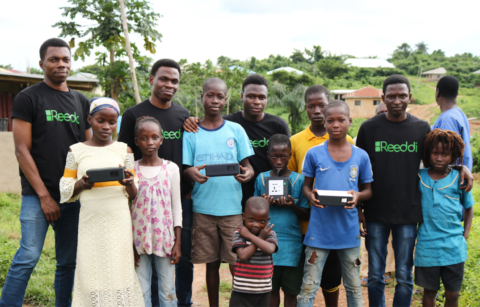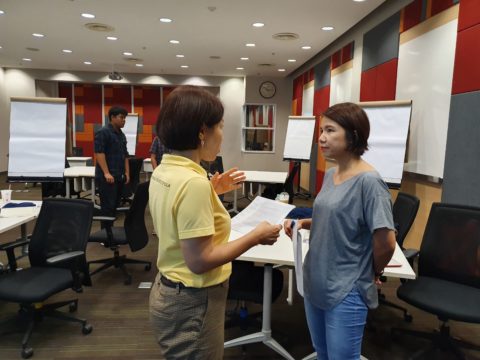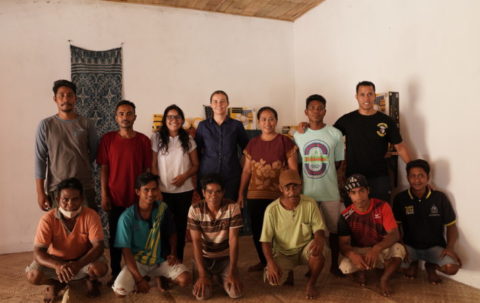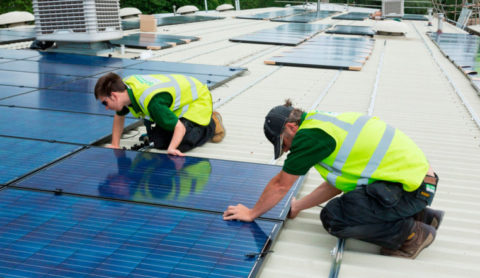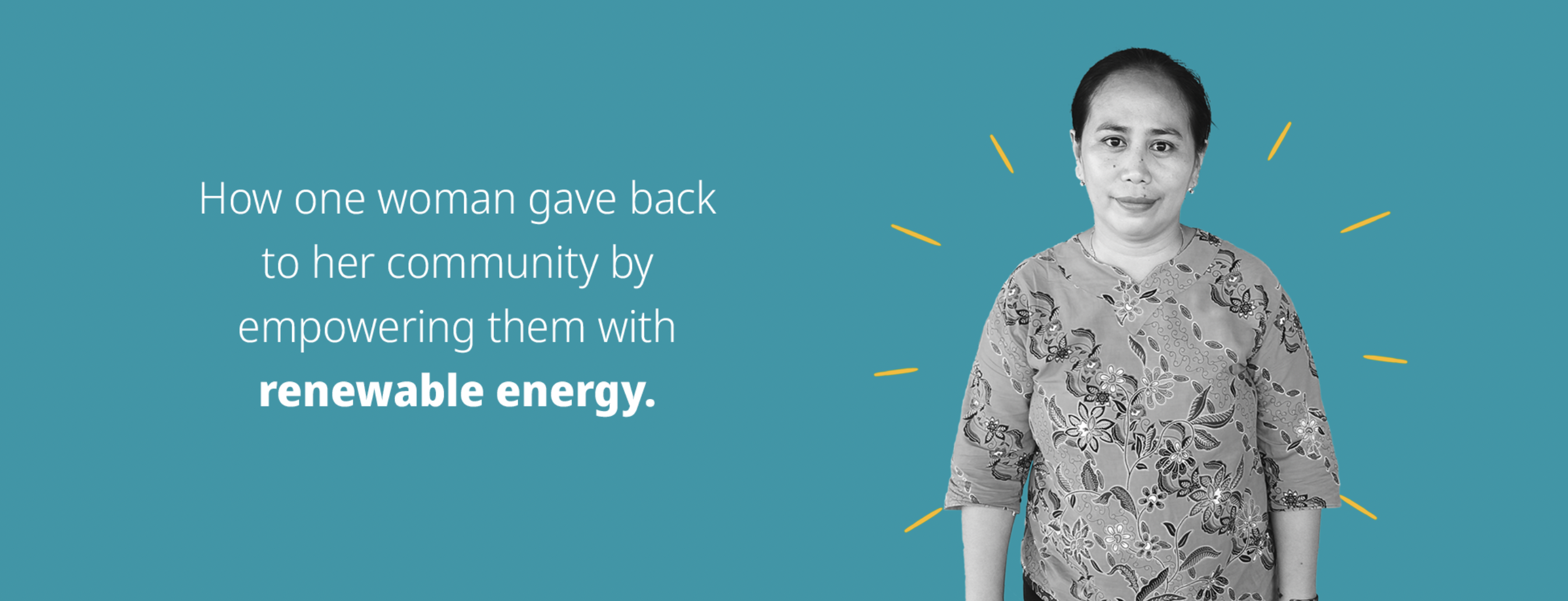EXCEL Accelerator is a growth-stage accelerator focused on the clean energy transition and climate change mitigation in China. Leveraging our connections in local government, academia and industry, EXCEL Accelerator provides growth-stage startups with technology/product expertise, pilot opportunities, and market expansion.
This year in Cohort 3, we are proud to be supporting 15 startups offering innovative climate solutions across various fields including clean tech, energy internet and carbon emission reduction. They also share the same vision – to contribute to China’s ‘’Dual Carbon’’ goal (to reach peak carbon use by 2030 and become carbon neutral by 2060).
Here are the finalists of 2022 EXCEL Accelerator Cohort 3:
Energy Internet Sector
TerraQuanta is a technology-driven company, it has established efficient data acquisition channels with global mainstream satellite data providers, integrating massive multi-source satellite data through a team of experienced remote sensing scientists, AI algorithm team and engineering team. TerraQuanta combines data fusion and algorithm development together to bring 600,000 meters’ data within reach and creates a “Data Encyclopedia of the Earth”.
At present, TerraQuanta has supported the application of more than 30 scenarios in the fields of agriculture, forest carbon-sink, agricultural insurance, infrastructure, environmental protection, and inclusive finance, scenarios include ground cover monitoring, crop yield estimation, water resources and water environment monitoring, forest resources dynamic monitoring, urban subsidence monitoring, etc.
BigData FinTech specializes in carbon emission management calculation, accounting and inventory system tools and carbon planning service provider. BigData FinTech was founded in 2016, the company uses industrial internet technology and cloud services to optimize the practical needs of accounting, inventory, internal control, collection, supervision and optimization of carbon emissions (carbon assets) for manufacturing enterprises such as steel, chemical, non-ferrous and construction industries.
The company can provide enterprise carbon data management, product carbon footprint calculation and CEPP certification for the traditional process manufacturing industry represented by metallurgy, building materials and chemical industry and their logistics supply chain.
Since BigData FinTech’s establishment, the team has been aiming at serving entities and keeping up with the industry, and striving to help China’s manufacturing industry achieve the ultimate goal of carbon neutrality.

Dayu
DAYU is the first technology startup in China focusing on DPU since it was registered and founded. It is currently the leading company in the DPU field in China and is committed to building advanced DPU products with versatility through self-developed software, hardware, and chips.
Through existing and self-developed advanced chips, self-developed high-performance IaaS components and protocol-specific acceleration capabilities, DAYU provides a complete set of hardware and software products and services around DPUs, including chips, hardware products, system software, and application integration, and is committed to building a new generation of cloud computing engines to help users build leading IT infrastructures and accelerate the pace of enterprise digital transformation.
The company’s vision is to “unleash the application potential of high-speed networks in the way of DAYU, allowing enterprises to enjoy technology dividends selectively and helping them to build leading IT infrastructures well and fast”.
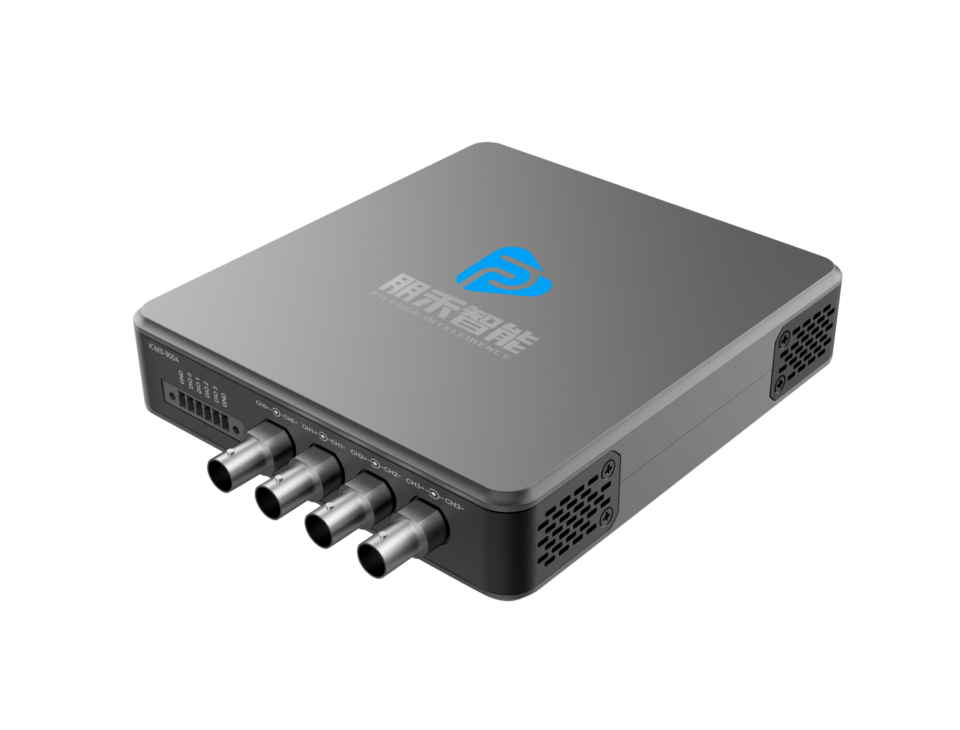
PH Edge Intelligence
PH Edge Intelligence’s team has more than ten years of experience in online monitoring and fault diagnosis of power equipment, industrial IoT platform design, edge computing system architecture, and machine learning applications, and is experienced in sensors, data acquisition, industrial data reliability, and industrial artificial intelligence. As the earliest pioneer in industrial intelligence and edge computing applications in China, PH Edge Intelligence is now dedicated to promoting the application of industrial edge computing, IoT and artificial intelligence technologies in the power industry. The core team members include doctors and masters who graduated from Fudan University, Shanghai Jiao tong University, Tongji University and Xi’an Jiao tong University, as well as practitioners from National Instruments, General Electric, CyberInsight and other related fields within the industry. As a high-tech leading company in assisting the digital transformation of power grids, PH Edge Intelligence is a high-tech enterprise in Shanghai, a member of the Shanghai Industrial Internet Association, a member of the Shanghai Artificial Intelligence Industry Association, an Enabler of Microsoft AI and IoT Lab, and has applied a number of patents and software copyrights on the project. PH Edge Intelligence has also established cooperation with Schneider and Shanghai Electric and other companies within the power industry to jointly build an intelligent and digital power grid. The team’s vision is to become an industry-leading industrial intelligence and digitalization comprehensive solution service provider.
Deep Sensing Technology (清蓉深瞳)
Deep Sensing Technology was established in 2021. It is a scientific and technological innovation enterprise relying on the transformation of scientific and technological achievements of Tsinghua University and Sichuan Energy Internet Research Institute Tsinghua University. Deep Sensing Technology focuses on the frontier of energy Internet and the new power system and has developed a number of fundamental technologies for energy sensing and energy collecting with core independent intellectual property rights, mainly providing key sensing components, intelligent diagnostic algorithms and overall solutions for energy system deep situational awareness, energy equipment intelligence and carbon tracking. The 500kV-level conformal integrated multi-parameter intelligent power fitting is successfully applied to the real-time assessment of natural disasters, prediction, fault and risk warning of power line status, insulation characteristics, of transmission lines and corridors off, the invention won the Gold Award of the 2021 Geneva Invention Award. The first digital system embedded in circuit breaker equipment was successfully developed, realizing highly reliable non-intrusive measurement of mechanical parameters, operation process and temperature load of circuit breaker, and its online diagnosis and unattended through knowledge mapping and artificial intelligence algorithm.
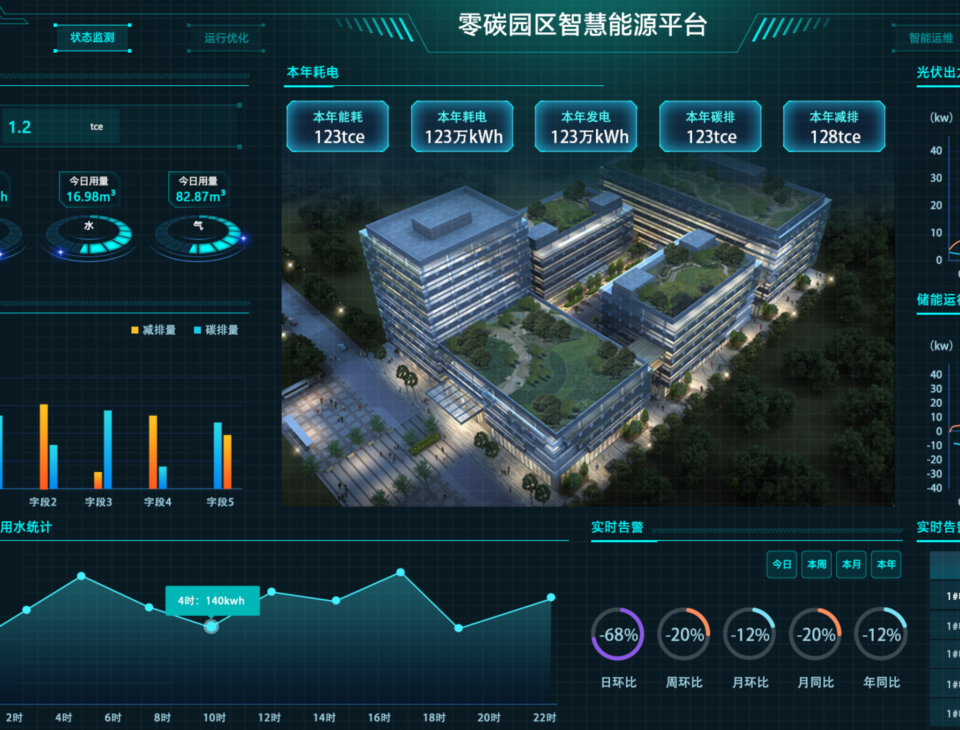
Syitsing Energy Technology
Syitsing Energy Technology (西清能源)
Syitsing Energy Technology, founded in 2018, is a high-tech enterprise focusing on technology R&D in the field of energy digitization. The company’s goal is to help the digital transformation of the power industry through advanced technology and to promote the transformation of the energy and power industry with intelligent applications.
All of Syitsing Energy’s core team members graduated from Tsinghua University and other well-known universities, with rich industry experience and technology development capabilities. Syitsing Energy has passed the ISO management system certification and holds a number of invention patents with several technologies that are advanced in China.
The company has rich implementation experience and several finished projects in the fields of power system design and planning, energy storage active safety and digital twin technology application, etc. Currently, the company’s major products and solutions include:
- Active safety management and intelligent operation and maintenance system of energy storage power station and new EMS system
- Integrated source-grid-load-storage energy management platform
- Power system digital twin and active equipment operation and maintenance
MetaStar is a cutting-edge technology enterprise jointly invested by Beijing Zhongguancun Development Frontier Enterprise Investment Fund, Taiyou Fund and Shuimu Tsinghua Alumni Capital. Relying on the R&D team from top universities such as Tsinghua, South China University of Technology and Massachusetts Institute of Technology (MIT), the company is deeply engaged in vertical segments such as new energy, power grid, power plant, water conservancy and hydropower, oil, natural gas, chemical and coal, etc. MetaStar has independent core technologies and built the Meta-Universe digital twin PAAS toolchain and digital twin intelligent production operation platform series products to help enterprises implement digital transformation.
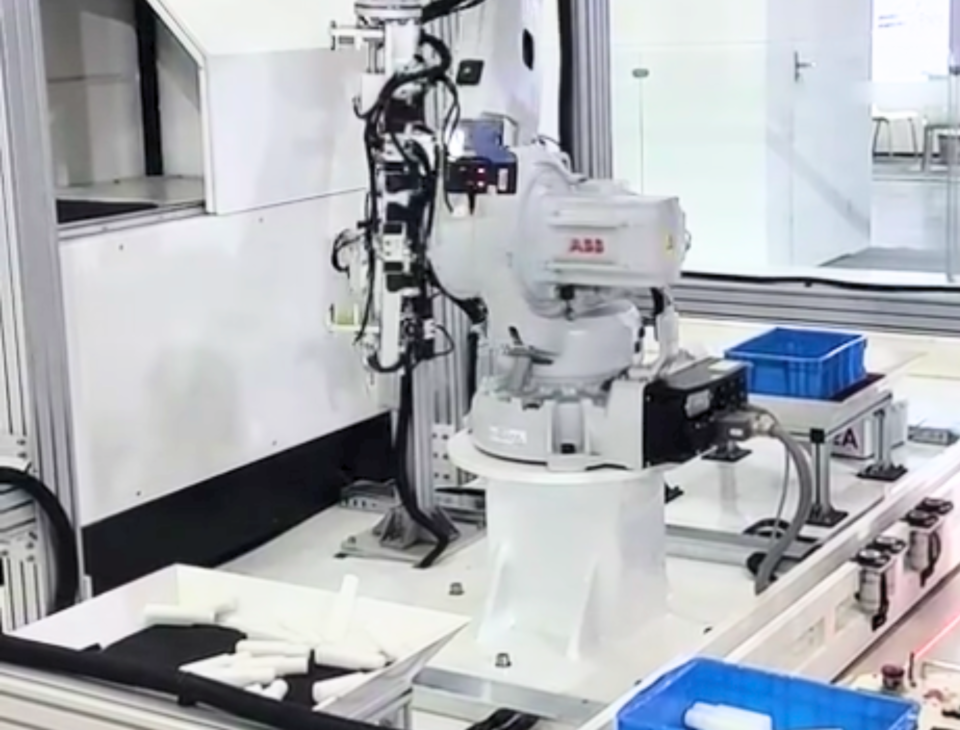
Macro AI
Macro AI Technology (暂元智数)
Macro AI Technology Co., Ltd. is an artificial intelligence high-tech company providing 3D vision solutions for high-precision industrial manufacturing, with an AI algorithm team led by PhDs from European and American top universities. Macro AI Technology upholds the mission of “empowering intelligent manufacturing with cutting-edge artificial intelligence technology” and practices the business philosophy of “technology for good to achieve self-realization”, and has solved the problems of ultra-complex machine vision recognition, inspection, positioning and measurement in the production process for many precision manufacturing enterprises. With the service attitude of “doing technology rigorously and winning the market with integrity”, Macro AI Technology has rapidly accumulated a good reputation in the industry and gained strong support from the government. In the future, Macro AI Technology will pay more attention to the construction of ecological partner system, and adhere to the “sharing is winning” cooperation concept, through strong alliance, to bring more industrial manufacturing enterprise customers with better, more economical, more intelligent Smart Factory solutions, to help industrial enterprises to achieve digital, intelligent transformation and development.
Environmental Protection Sector
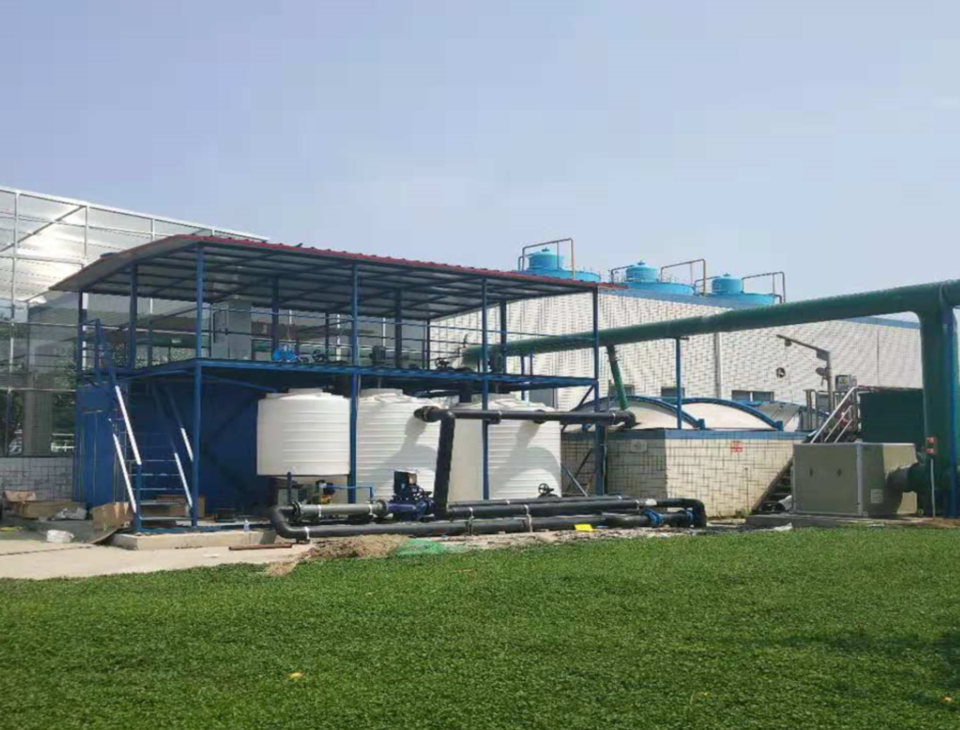
Blue Future
Blue Future was founded in 2014 and has been focusing on the R&D and industrialization of in-situ sludge reduction technology. The founder is a talent of the “Golden Panda” program from Chengdu Hi-Tech Industrial Development Zone, graduated from the aerobic granular sludge team of Nanyang Technological University in Singapore and published several papers in international journals. Blue Future’s environmental philosophy is “treating waste with waste”, and it has technologies such as iron sludge, bio-iron and iron batteries. Its honours include the second prize in the Chengdu-Shenzhen Twin Cities Entrepreneurship and Innovation Competition, the third prize in the Environmental Protection Innovation Competition of the Sichuan Department of Environmental Protection, the finalist enterprise of CCTV Chuang Ye Ying Xiong Hui, and the bronze medal in the Beijing Enterprises Water Group Cup 2020 among more than 570 projects recognized by experts, including academician Jun Ma. The corporate governance is well-organized, Blue Future is invested by CDHTIWENTURE Capital, Chengdu Industry Investment, Sichuan State-owned Assets Operation and Investment Administration and other provincial, municipal and district level state-owned capitals.
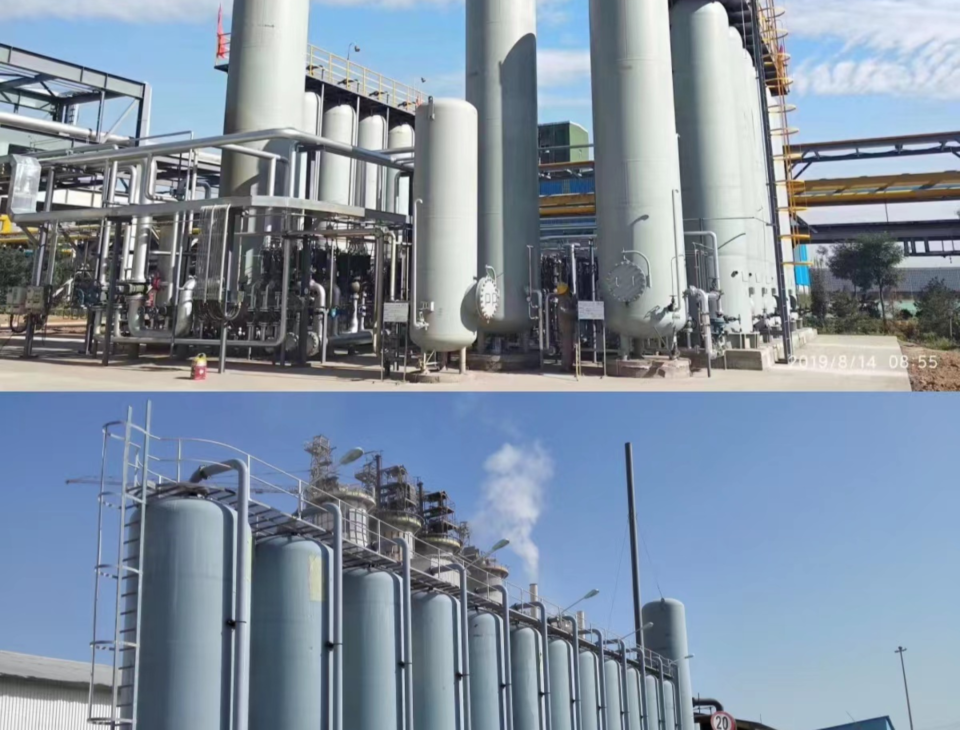
Senle Environment Technology
Senle Environment Technology (森乐环保)
Senle Environment Technology is a joint-stock enterprise launched by Chengdu Senle Group in 2018 to meet the needs of the national environmental protection industry, with a registered capital of 20 million yuan and fixed assets of 86 million yuan. Senle Environment is committed to the research and development and engineering transformation of gas preparation, separation, refinement, purification, drying, desulfurization, denitrification, hydrogen production, decarbonization, dust removal, ultra-low emission technologies in oil and gas, iron and steel coking, coal chemical, fine chemical, industrial gas, biochemical, fuel ethanol, glass, cement, thermal power, waste power generation, non-electricity industries: Senle Environment is proficient in gas purification and comprehensive utilization of coke oven gas, pressure swing adsorption, temperature swing adsorption, high-purity hydrogen production, SCR/SNCR denitration, ultra-high-porosity furnace denitrification, dry process, semi-dry desulfurization, flue gas removal and recovery of SO2, annealing furnace hydrogen recovery, nitrogen and hydrogen gas mixing, and other technologies. And Senle Environment has the production and manufacturing capacity of important components (adsorbent, desulfurizer, catalyst, program-controlled valve) and complete sets of skids.
By 2022, Senle Group has 1 EPC company, 2 manufacturing companies, 1 technology R&D company and 1 investment company. There are 3 regional operation centers and 12 offices in China generating 100-200 million yuan output value. Senle Group has established long-term cooperation with reputable universities such as Nanjing Tech University’s Adsorbent Research Institute, Fudan University’s Adsorbent Research Center, Sichuan University and Dalian Institute of Chemical Physics Chinese Academy of Sciences, becoming a comprehensive enterprise integrating technology research and development, engineering consulting and design, technical services, EPC, equipment manufacturing, plant operation and maintenance, special materials supply, investment and financing operation and other sectors.
Over the past twenty years, Senle Group has designed and built nearly one thousand large industrial plants for oil and gas, iron and steel coking, fine chemical, and non-electric industries.
Energy Finance Sector
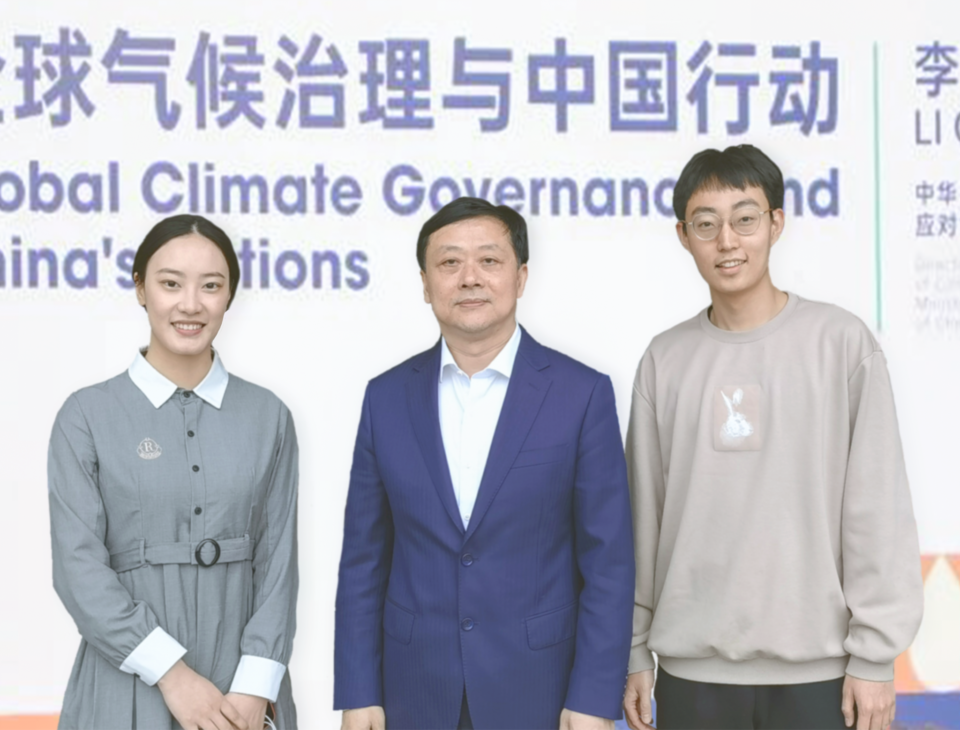
Knowcarbon
Knowcarbon is a technology company focusing on carbon neutralization. It is committed to providing one-stop carbon services based on carbon accounting and blockchain for carbon account, carbon audit and carbon asset management. Knowcarbon was incubated in Tsinghua University and gathered team members from Tsinghua University, Cambridge University, Geneva University and other well-known universities at home and abroad, with rich academic resources.
Knowcarbon puts forward two products, carbon pet and enterprise carbon treasure: “carbon pet” aims to reduce emissions through the development of carbon accounts, develops carbon accounts in the form of pet cultivation, enables individual users to cultivate “carbon pet”, and obtains carbon points for the gift of a sustainable mall, forming a closed-loop product to help individuals reduce carbon emissions; Qitanbao uses blockchain technology to make its own carbon emission, carbon emission reduction, supervision, audit and other processes open and transparent, and relevant records can be traced and verified at any time, so as to reduce the cost of human carbon audit and ensure the transparency of carbon audit.
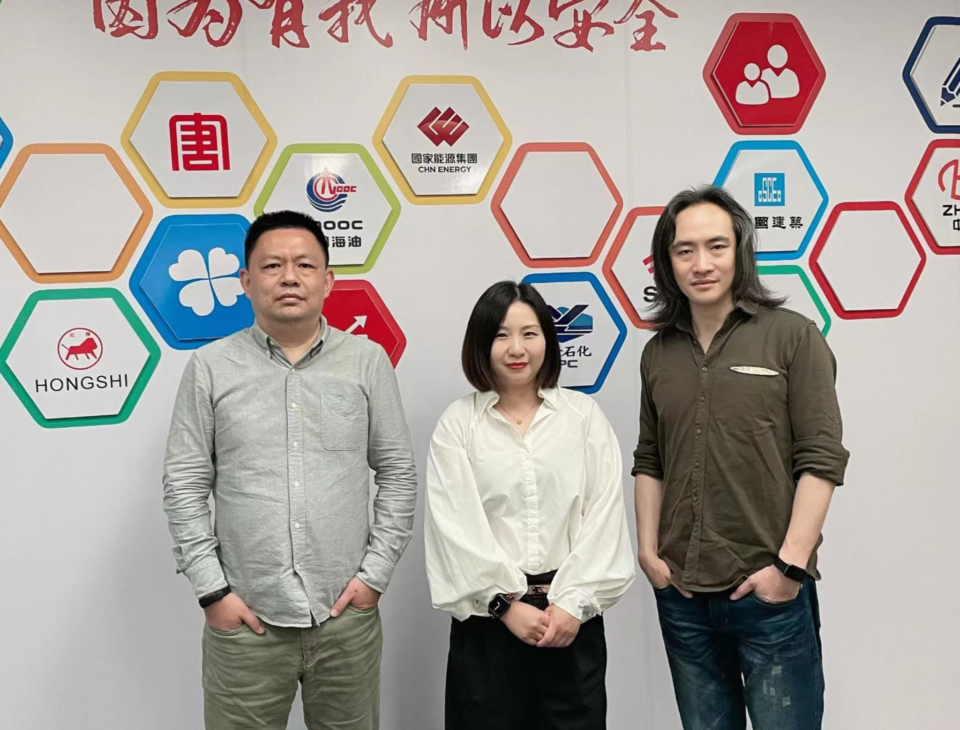
Eahon Technology
Eahon Technology (Shanghai) Co. was founded on April 20, 2021, in Shanghai. Eahon Technology is a high-tech company that provides energy management and carbon asset management services and is committed to helping companies achieve net zero emissions. Eahon Technology can provide a carbon asset digital monitoring system and management platform, energy saving and emission reduction in the production process and daily operation, new energy infrastructure planning, integrated power management, and carbon asset management consulting services. Eahon Technology’s in-depth research in carbon asset management technology has made major progress in IoT sensors, Network Communications, Big Data and software development. Eahon Technology can provide services such as equipment operational status monitoring, environmental monitoring, asset integrity management consulting, integrated operation management platform development (including energy, asset, security, etc.), and digital and intelligent transformation.
New Energy Fuel Sector
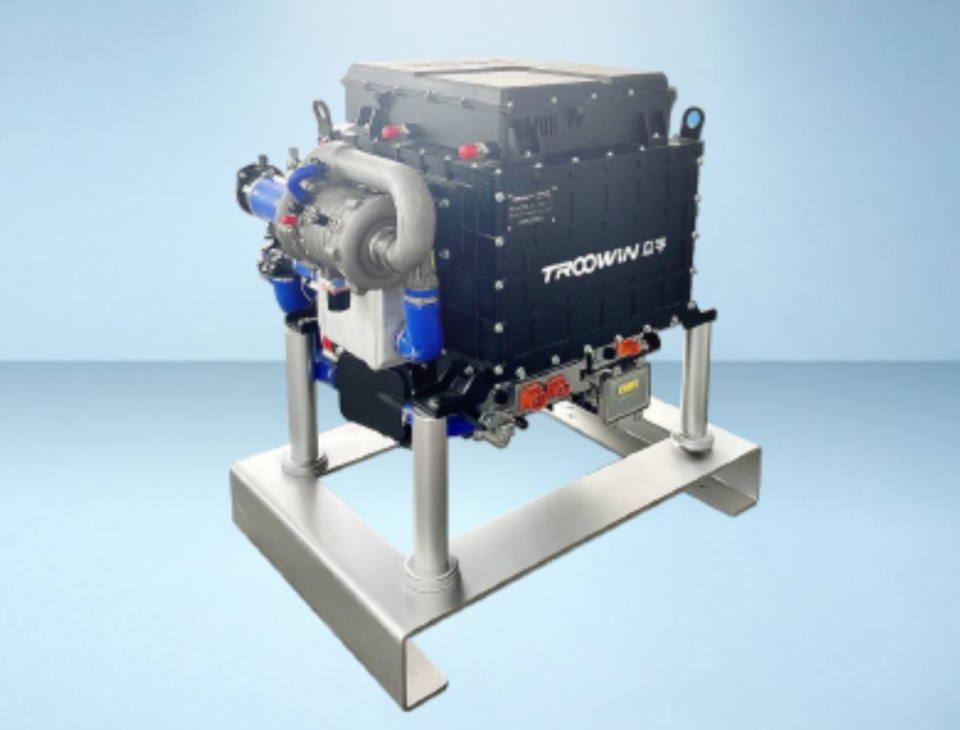
Wuhan Troowin
Wuhan Troowin Power System Technology (众宇动力)
Established in 2011, Wuhan Troowin Power System Technology Co., Ltd. (hereinafter referred to as Troowin) engages in the research and manufacturing of core parts, stacks and systems of fuel cells. As an expert in the fuel cell sector, Troowin has comprehensively mastered the core technologies of hydrogen fuel cells. The ability of design and development of fuel cell stacks allows Troowin to cooperate with manufacturers of end products according to the nature of applications in the market to sell and provide technical services for stacks and systems.
Since its establishment, Troowin has formed a R&D team of energy + gas + fuel cell led by experts under Hubei’s 100 Talent Plan, and has cooperated with scientific research institutions, universities, enterprises, etc. In addition, Troowin has been awarded such honorary titles as national high-tech enterprise,enterprise technology center and hydrogen energy talent training base of Hubei Province. Up to now, Troowin has applied for more than 200 patents and been granted over 100 patents (including 5 for invention in the USA, Japan and the EU), nearly 20 of which are internationally leading core technologies or proprietary technologies.
Troowin has developed three major products, namely fuel cell stacks and their core parts, fuel cell systems and fuel cell solutions, and can provide products and industrial solutions for automobiles, ships, distributed power generation and power supply. Troowin has established cooperation relationships with CMCC,SG,CGN,CSIC, DFM , Geely, Skywell, Hubei Wanshan and other companies to continuously promote the industrial and commercial operation of fuel cells.
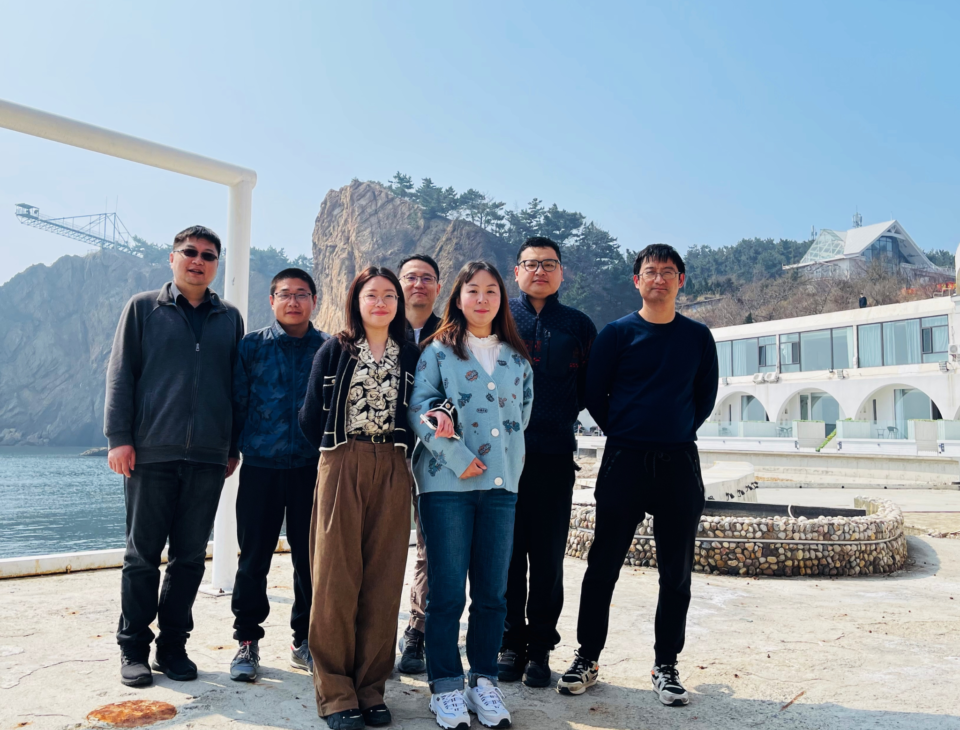
Sinwt Science & Tech
Sinwt Science & Technology (三听科技)
Sinwt Science&Technology is committed to providing customers with products and solutions for intelligent recognition, location and tracking of sound events using acoustic emission sensor (AE Sensor) arrays + artificial intelligence technology. The major products are divided into two major categories: Ti-Ting series and Zhi-Yun-Ting series. The Ti-Ting series is mainly used in scenarios such as Power Bureau monitoring, sensitive area monitoring and “black flying” drone, while the SmartCloud series is a microphone array-based acoustic signal acquisition and processing system for multiple scenarios and types of applications.
Sinwt Science&Technology has been awarded as National High-tech Enterprise, Zhongguancun High-tech Enterprise, Ministry of Science and Technology Small and Medium-sized Enterprises and Beijing Economic‑Technological Development Area Rising Star Enterprise, and has been awarded as Beijing Golden Bridge Project A type support project and Beijing Excellent Young Engineer Innovation Studio A type support project, etc. Sinwt has always insisted on independent research and development and has dozens of invention patents, utility model patents and software copyright, and the technical innovation ability is steadily improving along with the R&D.
Innovation leads to development, and science and technology achieve dreams. Sinwt Science&Technology, the sound knows it all.
